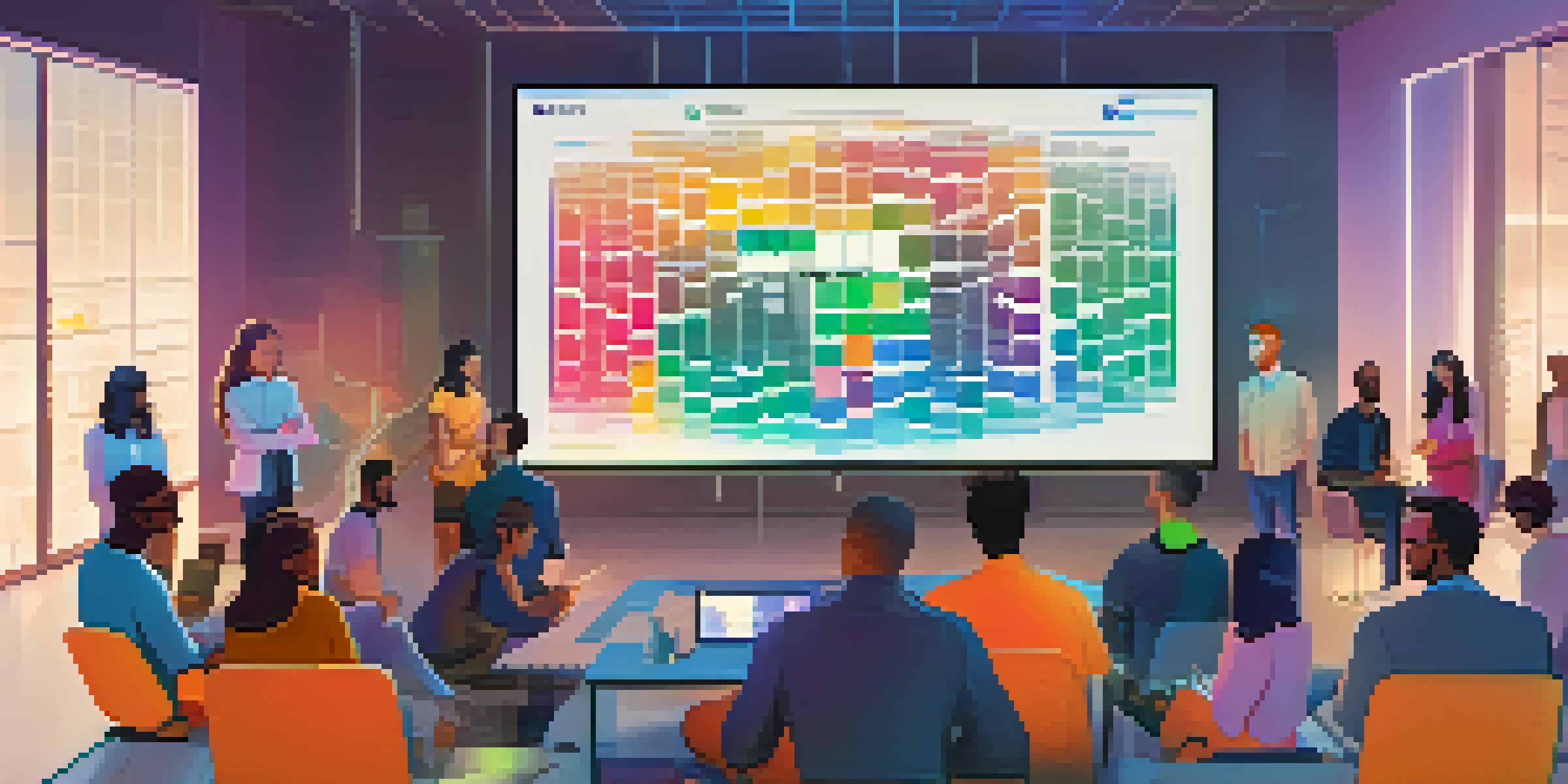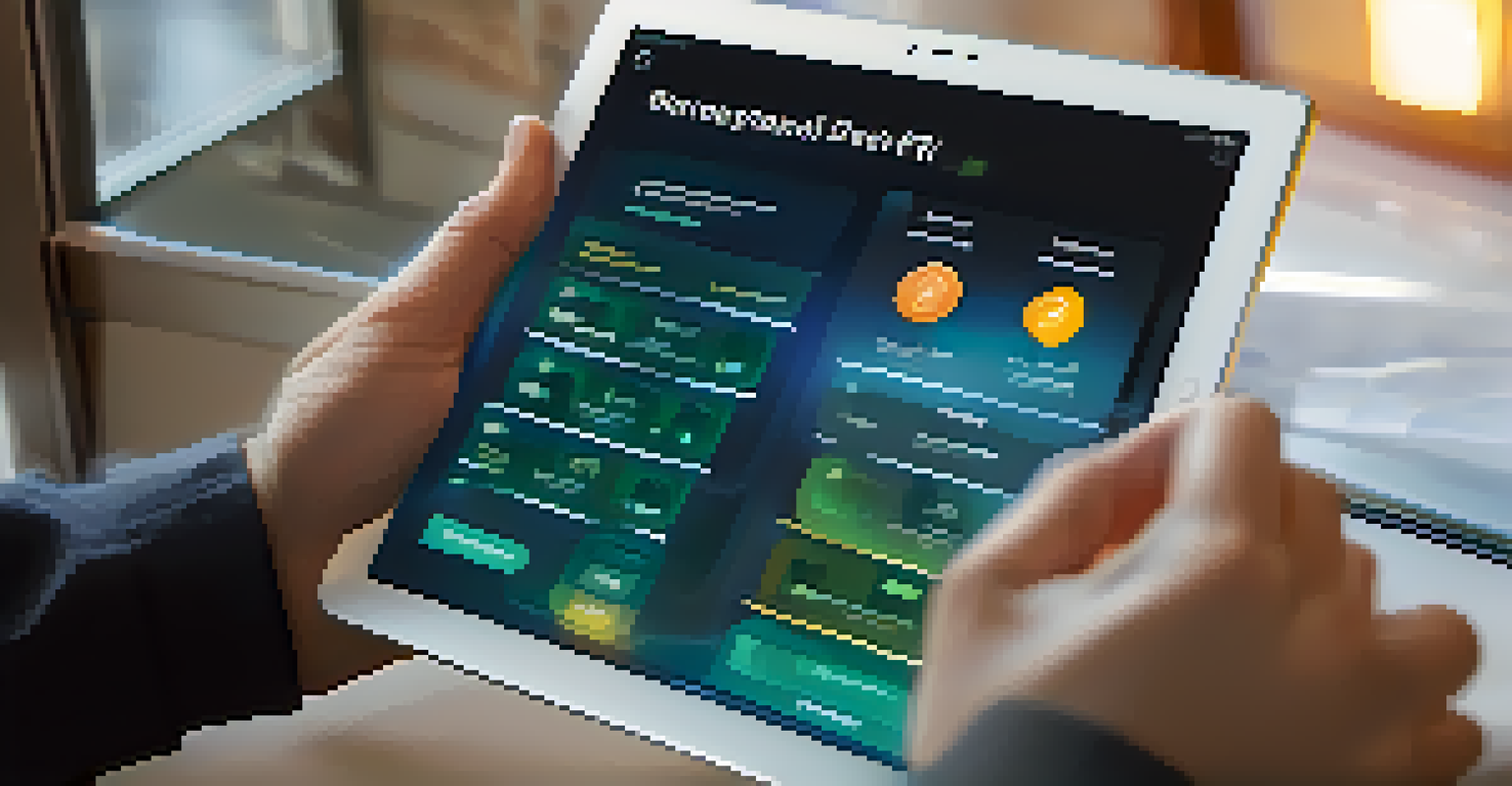Governance Tokens: Revolutionizing Smart Contract Design

Understanding Governance Tokens and Their Role
Governance tokens are digital assets that grant holders the power to influence decisions within a blockchain ecosystem. Think of them as voting shares in a company, where owners can propose and vote on changes. This participatory model encourages community engagement, making users feel more invested in the platform's success.
Decentralization is not just a technical goal, but a social one. It is about creating communities that can make decisions together and be accountable to one another.
Unlike traditional voting systems, governance tokens operate on smart contracts, enabling decentralized decision-making. This means no single entity can monopolize power, fostering a more democratic approach. For instance, if a blockchain project needs to update its protocols, token holders can discuss and vote on the best course of action.
The rise of governance tokens signifies a shift from centralized control to a more distributed model. This transformation empowers users and aligns the interests of the community with the platform's development, creating a more robust and adaptable ecosystem.
How Governance Tokens Enhance Smart Contract Designs
Governance tokens seamlessly integrate with smart contracts, making them more dynamic and user-driven. When users can vote on contract terms or updates, it opens the door for continuous improvement based on community feedback. This adaptability is crucial in the fast-evolving world of blockchain technology.

For example, consider a decentralized finance (DeFi) platform that uses governance tokens. Users can propose new features or changes, and if the majority agrees, the smart contract is automatically updated. This process not only streamlines innovation but also ensures that the platform evolves in line with user needs.
Empowering Users Through Voting
Governance tokens allow users to propose and vote on changes, fostering community engagement and investment in the platform's success.
By incorporating governance tokens into smart contracts, developers can create a more resilient and responsive environment. This shift allows projects to pivot quickly in response to market demands or technological advancements, ensuring longevity and relevance.
The Impact of Governance Tokens on Decentralization
Governance tokens play a pivotal role in promoting decentralization. They distribute power among users rather than concentrating it in the hands of a few stakeholders. This democratization is essential for fostering trust and transparency within blockchain ecosystems.
The power of the token is not just in its ability to represent ownership, but in its ability to enable governance and participation in the ecosystem.
When users can influence project decisions, it reduces the risk of central authority abuse. For instance, if a project is veering off course, community members can step in and propose changes. This collective oversight acts as a safeguard against mismanagement.
Additionally, the decentralized nature of governance tokens encourages diverse perspectives in decision-making. When various voices contribute to discussions, the outcomes are more likely to reflect the community's true needs and values, enhancing the project's overall effectiveness.
Case Studies: Successful Governance Token Implementations
Several blockchain projects have successfully integrated governance tokens, showcasing their potential. For example, MakerDAO utilizes its MKR token to allow users to vote on changes to the DAI stablecoin. This model has proven effective in maintaining stability and responsiveness to market fluctuations.
Another example is Compound, a DeFi lending platform where COMP token holders can vote on protocol upgrades and governance proposals. This engagement not only keeps the community invested but also fosters a sense of ownership, leading to more robust decision-making.
Promoting Decentralization and Trust
By distributing power among token holders, governance tokens enhance transparency and reduce the risk of central authority abuse.
These case studies illustrate how governance tokens can lead to innovative solutions and a more resilient framework within the blockchain space. As these examples show, when users are empowered to participate actively, the projects tend to thrive.
Challenges and Risks Associated with Governance Tokens
While governance tokens offer many benefits, they also come with inherent challenges. One significant risk is voter apathy; often, only a small fraction of token holders participate in decision-making. This can lead to a situation where a few active users disproportionately influence outcomes.
Another challenge is the potential for manipulation or collusion among large token holders. If a small group accumulates enough tokens, they can sway votes in their favor, undermining the democratic intent of the system. This necessitates the design of mechanisms that protect against such abuses.
Additionally, governance tokens can create complexities in governance structures. Balancing the power dynamics and ensuring fair representation requires careful planning and ongoing community engagement to maintain trust and integrity.
Future Trends in Governance Tokens and Smart Contracts
As blockchain technology continues to evolve, so will governance tokens and their applications. We can expect to see more innovative governance models that enhance user participation and streamline decision-making processes. New approaches may emerge to tackle current challenges, such as voter apathy.
Moreover, the integration of artificial intelligence could play a pivotal role in governance, providing data-driven insights to inform decisions. Imagine a system that analyzes community feedback and suggests optimal proposals, making the decision-making process even more efficient.
Innovative Solutions in Blockchain
Successful implementations of governance tokens, like MakerDAO and Compound, demonstrate their potential for driving innovation and resilience in blockchain projects.
Ultimately, the future of governance tokens lies in their ability to adapt and respond to the needs of their communities. As projects experiment with different models, we can anticipate a more refined and effective approach to decentralized governance in the blockchain space.
Conclusion: Embracing the Governance Token Revolution
Governance tokens are revolutionizing the way we design and interact with smart contracts. By enabling decentralized decision-making, they empower users and create a more engaged community. This shift not only enhances transparency but also fosters trust among participants.
As we look ahead, it's crucial for projects to embrace the principles of decentralization and community involvement. By doing so, they can leverage the full potential of governance tokens to create systems that are not only innovative but also sustainable.

In conclusion, the rise of governance tokens marks a significant step toward a more democratic and user-centric blockchain ecosystem. By participating in this revolution, users can help shape the future of smart contracts and the broader digital landscape.